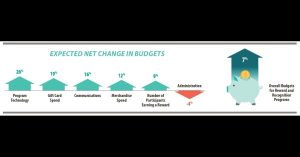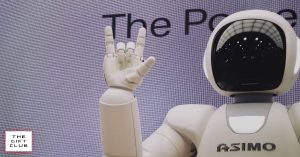There’s no getting away from the fact that 2020 has shifted the way we work for the long term. Big business had been slow to adapt the way it enabled employees to work, but the lockdowns across the world have expedited a shift to a more flexible and remote working style. Many organisations are looking for ways to downsize their real estate footprint to reflect that, realising the often very significant reduction in expenses this brings. However, nearly 80 per cent of employees surveyed by NNT Ltd said that working from home had been challenging, mostly due to technical limitations. So, whilst this shift offers both staff and business a range of benefits, it also hasn’t been completely smooth sailing.
Remote Workers Need Better Support
Remote working is only going to be effective if business set up the infrastructure to support this new way of working. Outside of traditional offices and into their own homes, employees face a new set of challenges to maintaining wellbeing and accessing the HR provisions they’ve gotten used to. The employee experience has changed, but the standards required to attract and retain the best talent have not. So how are HR professionals responding and what are the expected investments?

According to Forbes “today’s employees are looking for a more personalized experience, customized to how they, on an individual basis, like to accomplish work. For example, some people prefer video calls to interact with team members, while others best consume information when delivered in text form. Businesses will need to change the workplace platform and make it more consumer-centric to accommodate the demands of the next-generation worker.”
Remote teams will rely on technological solutions more than ever, so any company looking at establishing remote working for the long run must place technology at the heart of their employee experience strategy. Gallup’s State of the American Workplace report found that highly engaged business units achieve so companies can’t afford to let engagement and experience standards slip in the move to more remote and flexible working. The key is in ensuring that the right online networks, video and gamification platforms are invested in and used to drive this forward so that people can get their jobs done seamlessly.
Analytics and AI – it’s here to stay
One tricky element of a more dispersed and remote employee body is how to ensure monitoring around productivity, wellbeing, resilience and of course, employee engagement.
“Just 4% of HR and general and administrative staff worked from home pre-COVID. Now, 25% are expected to work from home this year, and another 33% will have a hybrid arrangement.” Hackett, 2021

Artificial Intelligence (AI) is likely to play a growing role in managing increasingly complex analytics and Mercer’s 2020 Global Talent Trends Study found that 53 per cent of businesses are looking to increase their use of AI because of this. The potential of AI is impressive, offering ways to establish the specific training needs of employees, and analysing their work style to better support them. It can also identify ways to tailor engagement to suit teams and groups of employees.
According to O. C Tanners Global Culture Report 2020, for nearly six years, MD Anderson Cancer Center has used AI to improve patient care, patient experience, and employee engagement. The health histories of patients update in real time as the technology learns and remembers their preferences and behaviours and integrates with medical information taken during office visits. This helps their doctors and nurses prescribe more personalized, up-to-date recommendations at the most opportune times. You can download their full report here.
Maintaining Employee Wellbeing
One of the biggest factors influencing employee experience is wellbeing. The role that good physical and mental health plays in maintaining performance cannot be underestimated. Everyone has also seen both these aspects impacted by the lockdown. Cultivating a sense of belonging means an increased sense of wellbeing.
“Singapore employees who feel like they belong are more than 4x more likely to rate their well-being favourably than those who feel like they don’t belong (75% vs. 18%).” Thai News, 2021

One of the biggest factors influencing employee experience is wellbeing. The role that good physical and mental health plays in maintaining performance cannot be underestimated. Everyone has also seen both these aspects impacted by the lockdown. Cultivating a sense of belonging means an increased sense of wellbeing.
Microsoft has responded to this need by launching Viva, a platform to help people thrive at work through engagement, learning, wellbeing and knowledge discovery. These are then embedded into the flow of people’s work. Systems like this also encourage peers to recognise each other’s work through shared newsfeeds, providing timely and public moments of celebration.
Other providers will likely also soon respond in the same way, providing one stop shops for the employee experience, helping people feel connecting wherever they are working from.




